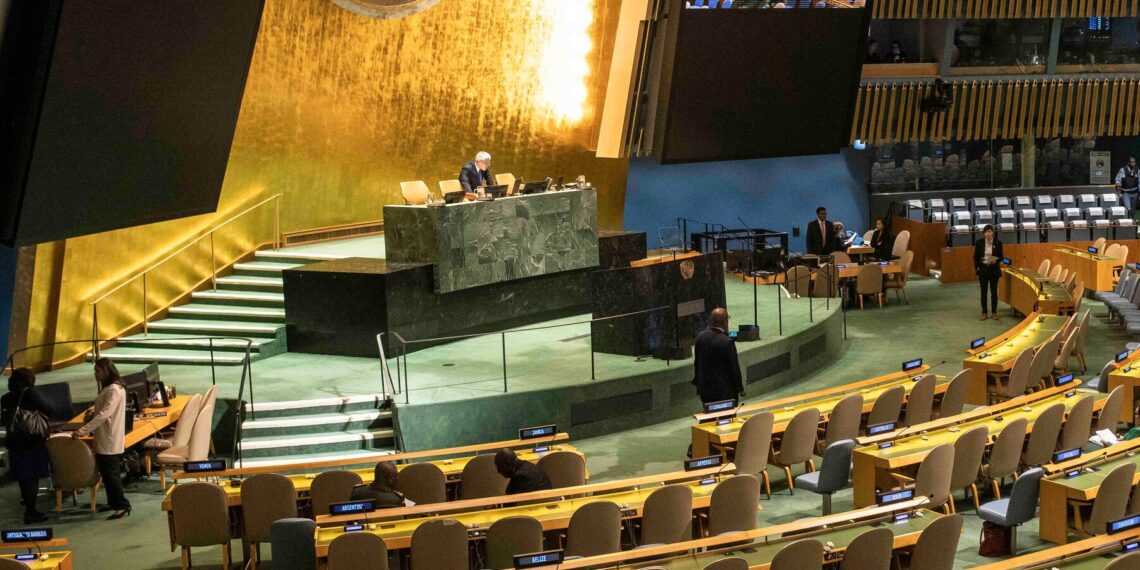The Gist
World leaders are meeting in New York amid ongoing and serious conflicts in Ukraine, Sudan, and the Middle East. These issues are causing great concern and affecting many lives. The meeting aims to discuss these conflicts and find ways to promote peace and stability. President Biden is scheduled to speak to the leaders on Tuesday morning, highlighting the urgency of the situation worldwide.
The gathering reflects the international community’s commitment to addressing significant global challenges. Despite the severe nature of these events, the leaders hope to explore collaborative solutions. The situation remains critical, as the effects of the conflicts extend beyond borders, impacting economies and societies around the globe.
The Good
- Global Awareness: The meeting draws attention to serious issues that affect people worldwide. Increased awareness can lead to more support and resources to help those in need.
- Collaboration: Bringing together world leaders encourages cooperation and sharing of ideas. This teamwork can help find effective solutions to conflicts.
- Strengthening Alliances: Countries working together can strengthen their alliances, making international relationships more robust and potentially leading to lasting peace.
- Promoting Peace: Discussions at the summit have the power to promote dialogues aimed at achieving peace in conflict zones, which can save lives and restore stability.
- Future Support: Addressing these conflicts at such high levels may motivate richer countries to offer humanitarian aid and support to those suffering in the affected regions.
The Bad
- Risk of Inaction: If world leaders fail to take decisive action, the ongoing conflicts could worsen, leading to more violence and suffering for innocent people.
- Political Tensions: Differences among leaders at the meeting might increase political tensions, reducing the chance for collaboration and peace.
- Overemphasis on Certain Conflicts: Some areas may receive less attention, leading to a skewed understanding of global issues and neglecting other important crises.
- Public Disillusionment: If the meeting does not yield visible results, citizens may feel disappointed with their leaders and lose faith in international governance.
- Security Risks: Large gatherings of world leaders can pose security risks, making them potential targets for attacks, which could jeopardise the safety of those involved.
The Take
World leaders have gathered in New York, drawn by significant challenges posed by ongoing conflicts in Ukraine, Sudan, and the Middle East. As the international community unites for this urgent meeting, a wave of concern has swept across nations regarding the human toll and regional stability brought on by these distressing situations. For many, these conflicts are not merely news stories but personal tragedies affecting families, communities, and economies on a global scale.
President Biden is expected to present the position of the United States on these matters when he speaks to the leaders on Tuesday morning. His speech will likely underline the need for collaboration among nations to pursue effective resolutions. This gathering is a critical moment for world leaders to reassess their approach towards tackling these issues, especially as tensions remain high and violence continues to disrupt lives.
During these crucial discussions, leaders may explore a range of strategies that focus on diplomatic efforts, humanitarian assistance, and rebuilding frameworks. Successfully addressing the underlying issues may help reduce conflict and foster a climate of cooperation and understanding among nations. The hope is that through these discussions, a collective strategy can be developed to mitigate the crises and respond more effectively to future challenges.
The stakes are high given the grim realities faced by civilians caught in these conflicts. With millions of people in need of support, the importance of these international dialogues cannot be overstated. The outcomes may have lasting implications for global peace and security, as well as for the political dynamics between countries involved in these conflicts.
Seeking positive outcomes through discussions is essential, as it can help bring about peace and rebuild communities affected by turmoil. However, there are worries that leaders may struggle to agree on particular courses of action or fail to commit to necessary investments in diplomacy, humanitarian support, and reconstruction. Such inaction could potentially exacerbate the already dire situations on the ground, hindering efforts to restore peace and well-being.
Critics of the summit may express concerns regarding the potential for political posturing, where leaders may talk about solutions without taking real actions. This could lead to frustration among citizens who expect more from their governments. The gatherings also have security implications, as they present targets for extremism amid volatile political climates. Such issues underscore the urgent need for effective and sincere leadership that seeks not just to address conflicts but also to pave the way for long-lasting solutions.
As these leaders prepare to discuss pressing issues, there is a shared responsibility among them to rise to the occasion and deliver tangible results. The gathered nations can reinforce their commitment to global human rights, peacekeeping, and security in this interconnected world. Only through genuine collaboration can they hope to make a difference for those suffering in the most troubled parts of the globe.
Click here to read the full article





































































